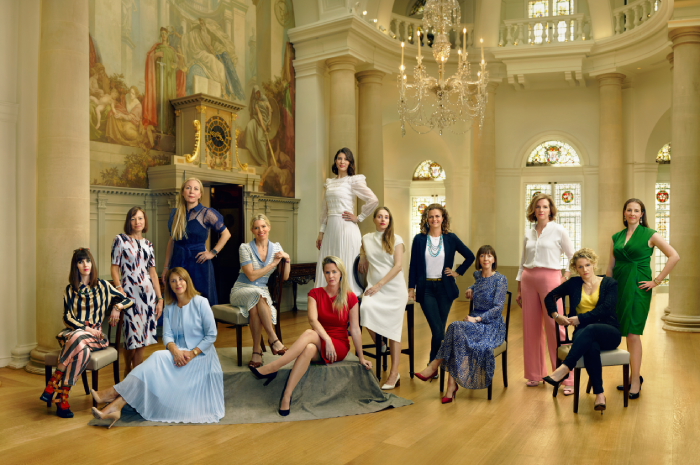
Top divorce and family lawyers at different stages of their career – from newly minted partners to established heads of department – chart the evolution of their profession, offer their opinions on the ‘Queen Bees’ and anticipate changes to the way big-money break-ups unfold
London is the divorce capital of the world. Proof of this seems to arrive with monotonous regularity, but the most obvious pieces of recent evidence have come in the shape of two big splits – and two historic awards. The first was between Azerbaijani energy magnate Farkhad Akhmedov and his wife Tatiana Akhmedova, who was initially awarded £453 million (although she faced an uphill battle to receive even a fraction of this). Earlier this year, Princess Haya bint Hussein was awarded £554 million in her divorce from Dubai’s ruler, Sheikh Mohammed bin Rashid Al Maktoum.
In both of these multifaceted disputes, starring roles were played by ‘Queen Bees’ – members of the group of five leading family lawyers whose reputations have come to dominate their profession over the past three decades. Each of them – Fiona Shackleton of Payne Hicks Beach, Helen Ward of Stewarts Law, Frances Hughes of Hughes Fowler Carruthers, Diana Parker of Withers and Sandra Davis of Mishcon de Reya – remains at the top of their game. However, their careers now overlap with a new generation of practitioners who have either already reached the top of the field or seem destined to do so.
The ascent of this new generation has coincided with changes to the timbre of the profession and developments in the law which are in keeping with a more consensual, collaborative approach that is reshaping the way marriage breakdown is broached.
In order to better understand the implications of this shift, Spear’s invited 13 top lawyers at different stages of their career (from freshly minted partners to established heads of department) to consider how the profession has changed, where it’s headed next – and what it all means for HNWs embarking on a life-changing event for themselves and their family. What follows is an edited and condensed version of the discussion.
‘I didn’t expect the level of hostility that I witnessed and the lack of compassion both on the inside and outside of law firms, particularly from women to women.’
What was the profession like when you started your career?
Catherine Bedford (Harbottle & Lewis): The truth is, it was quite a hard environment. It was not what I expected. When you hear the words ‘family law’, I didn’t expect the level of hostility that I witnessed and the lack of compassion both on the inside and outside of law firms, particularly from women to women.
These experiences made me determined to work within and promote an environment that absolutely prioritises values of cooperation, respect and teamwork. It therefore became an exciting time because we were doing things differently, and this ultimately can only have had a positive impact on our clients. Healthy ship equals excellent outcomes.
Ros Bever (Irwin Mitchell): When I was starting out my career as a family lawyer, it was seen as not quite as intellectual [as other areas of law], when in fact it’s quite the opposite. What’s brilliant about family law is that you are stretched; most cases touch on every area of the law and every aspect of your life.
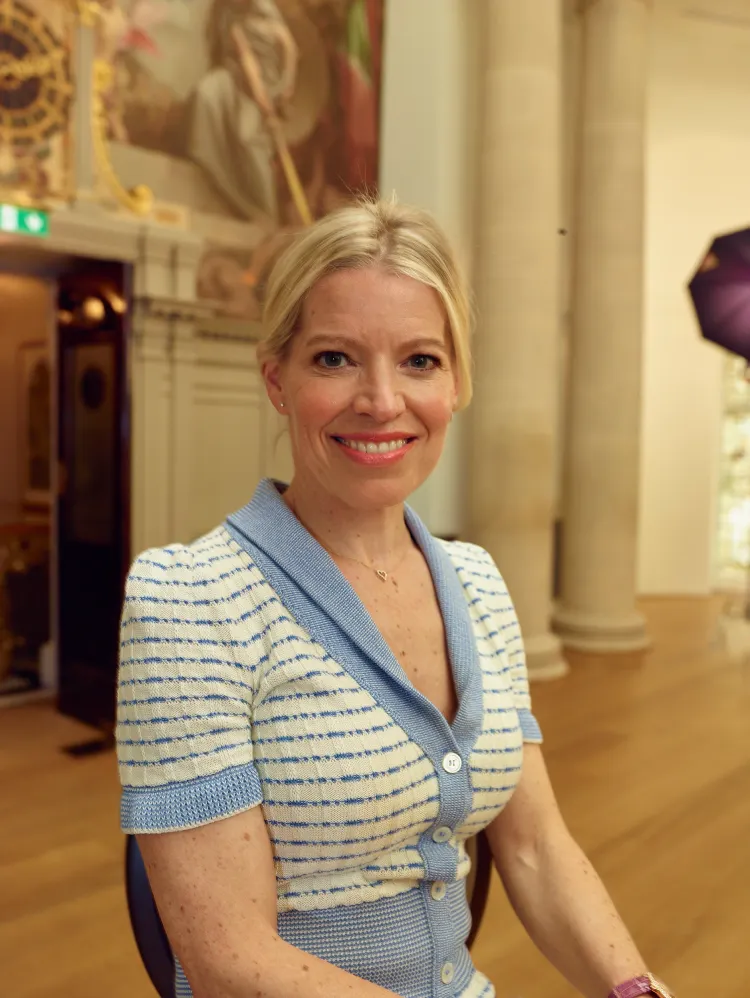
Claire Blakemore (Withers): One of the things that struck me was that – and this is no criticism, it’s just reflective of the time – we were very much trained on the basis that we are lawyers, and that we’re not qualified to understand the emotional needs of our clients. The truth of the matter was that we actually spent a lot of time dealing with emotions.
I think it’s been a slow progression, although lately the pandemic has really accelerated things. Now it’s a completely different time. First of all, there are so many more options for clients in terms of how they resolve matters now. In some ways it’s a bit confusing for them. One of the things that we as lawyers need to be really good at is helping our clients identify the right method for them – how do they know which is the right solution?
What was it that attracted you to family law in the first place?
Lucy Stewart-Gould (Stewarts): As a student at UCL I took on some part-time work assisting a solicitor. The first case I ever went to was in the High Court, and it was a childcare case. There was an argument about whether they should be removed from this country back to being with their grandparents, because of the family situation in another country. And I sat there taking this note, thinking, ‘God, I could do this… this is a really brilliant mixture of the sort of academic intellectual rigour of the law, and just human beings with actual problems.’
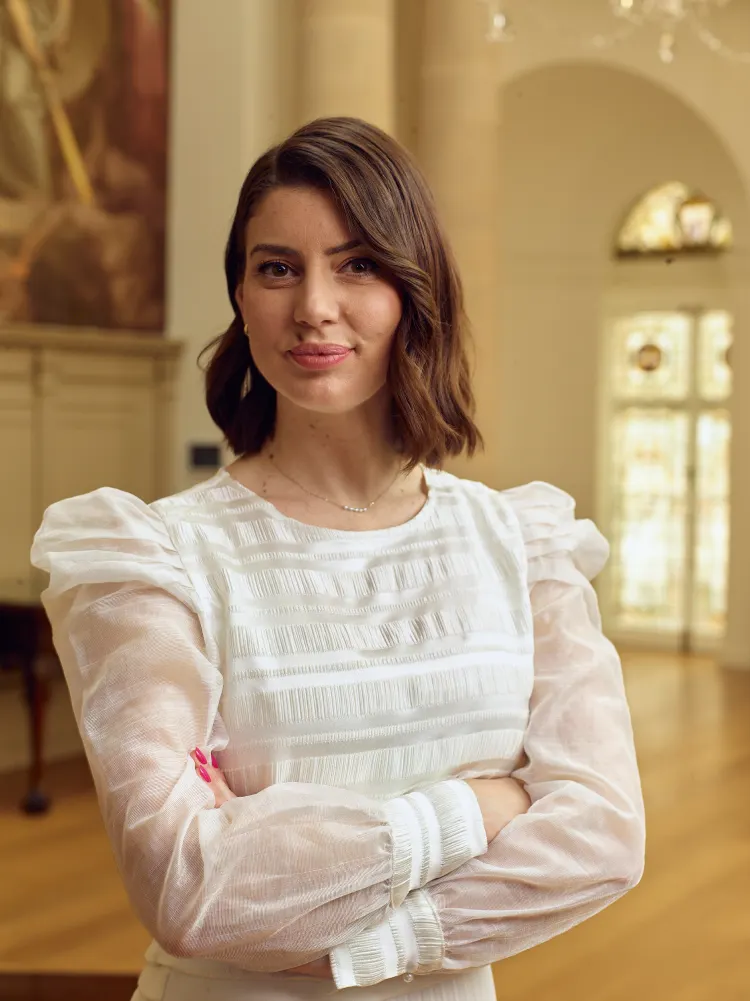
Catherine Costley (Payne Hicks Beach): I thought commercial property was something I can do, I can go through the process of it… but I just felt that it’s not ever going to exploit my personality and my strengths and hide my weaknesses. I just think I’m horrendously curious about other people. I like helping people. I like the idea of sort of, in times of strife stepping in and being the person that’s going to help to fix that. Family law slotted into my kind of philosophy on what I wanted to do with my life.
Laura Naser (Penningtons Manches Cooper): When I said I wanted to go into family law, the training partner at the time said: ‘We don’t think you’re going to be a very good family lawyer, because you care too much – you need to be far more commercial in law.’ This was a very commercial property-heavy firm, and the guy was a corporate lawyer, so I don’t know whether he really understood family law, but that hit me. Excuse the language: I call them my ‘fuck-you moments’.
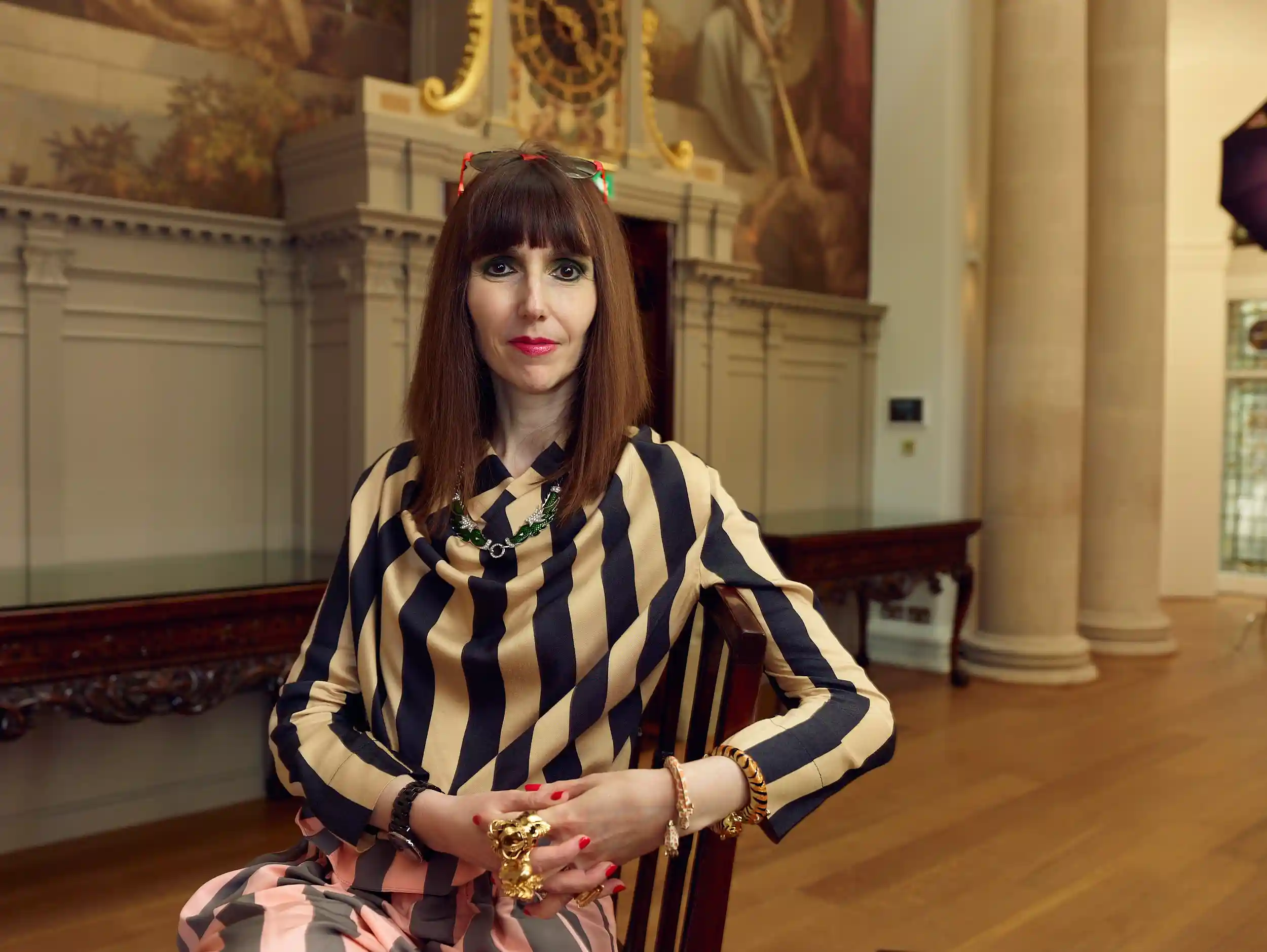
How much has the industry changed since you started your career?
Joanne Edwards (Forsters): It’s somehow 25 years this year since I first started practising family law, and when I look back, I think when I started out it still felt very litigious. It still felt that success was measured by how many big reported cases you had appeared in in the last year. But clients don’t want to be the next reported case; they don’t want to spend two years of their lives going through a very traumatic divorce. So I’m increasingly seeing couples in my mediation practice who I will work with who are worth tens or hundreds of millions of pounds, who just want to sort things out with my help.
Melissa Lesson (Mishcon de Reya): It does feel as though people are less litigious than they were back then. I think there are more clients now who are less willing to spend a huge amount of money, which is a positive thing. You know, long may that continue, because in family law your aim is not to polarise the parties, especially if they’ve got children.
They need to be able to come out of this process, able to speak to each other and go to their children’s weddings together. And propelling them into full-scale war is not going to achieve that.
Lois Langton (Howard Kennedy): One of the big changes is around cost information to clients. Gone are the days where at the start of a case, you’d say: ‘Well, I can’t say how much it’s going to be – it could run into hundreds of thousands of pounds, we’ll see how we go and you get a time bill every month.’ Clients don’t want that nowadays; they are much more sophisticated. They can shop around, there’s information available online.
Laura Naser: Most of my clients come from Instagram or recommendations now. So much of this personal brand of the family lawyer is about this sense of being ‘premium but approachable’ and developing a connection where clients feel like they know me, they can trust me, that we’re alike.
So I immediately get these bonds with my clients, because there is that short cut to a great relationship. And I have these very business-like clients who have got these multi-millionpound companies, but they can talk to me about things that are so personal very quickly.
BBC TV drama The Split depicts top family lawyers battling and competing against each other. Are there elements of the show that ring true?
Lucy Stewart-Gould: It’s entertainment, of course. But tonally, thematically, it’s pretty on the nose.
Laura Naser: You remember when the dress code email was leaked from [family law firm] Vardags and it was like ‘don’t wear cardigans’? It is like The Split, where there’s this competitiveness. But the reality is you can have those jokes and those expectations of what the ethos is like at different firms and what they’re all wearing or whatever, but it’s all a bit of fun.
Anna Worwood (Penningtons Manches Cooper): There are some people who will regularly appear in the press, with celebrities etc. And there will be some lawyers who are regularly quoted in the press. I am not one who tends to sort of be in either of those; I have a very busy practice. My satisfaction is in doing a very good job for my clients.
Catherine Bedford: In this profession there can be a sense that you have to be ‘in the club’ in order to get good work – that, as I was once told, it is vital for one’s career to be liked by ‘important’ lawyers. I’ve never bought into any of that and I don’t agree. If something’s wrong, I’ll call it out as wrong.
A number of years ago, a lawyer friend of mine pulled me to one side once and said: ‘What’s in it for you to be calling these things out? The smarter thing to do would be to be in the club.’ But that is not something I can do if it means turning a blind eye. If a heavyweight lawyer – or any lawyer – is abusing their position, I’m going to name it. If that strikes me off the Christmas card list, so be it.
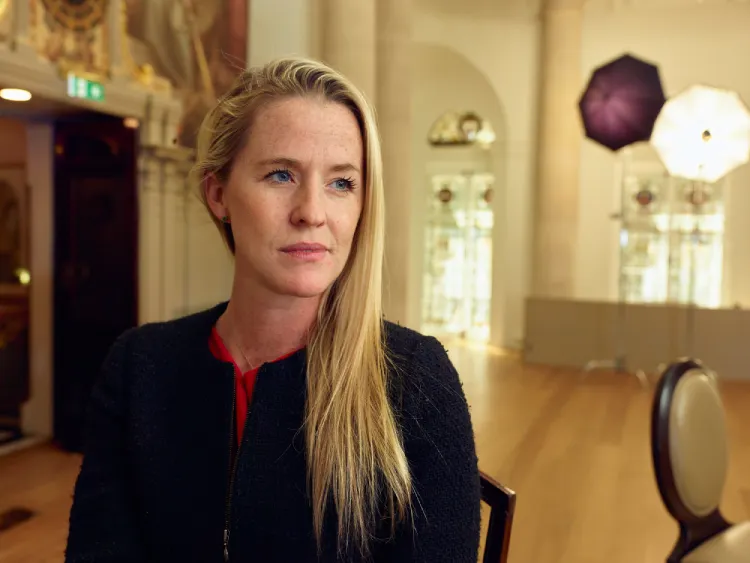
Georgina Hamblin (Vardags): Having a certain kind of reputation can be a good thing, because if you’re known as being a particularly aggressive opponent, then the other side thinks: ‘Oh, that means they’re gonna go to final hearing.’ It can mean that actually you reach a settlement sooner because nobody wants that. And a lot of it is just purely because it’s a small community, and there’s a lot of gossip. Lots of it is just silliness, really. But when we all get down to it, we all want the same thing, right?
Do you ever find yourself going up against your friends in the industry?
Catherine Costley: I have done some cases recently with two lawyers at different firms with whom I’ve had really honest conversations. We knew that we’d be friends at the end of it; I got really close to both of them.
Lucy Stewart-Gould: Those relationships are really important because oftentimes, all that it takes to sort out what can seem like a completely intractable case is knowing that you can pick up the phone to the person on the other side and say: ‘Look, if you could do this, then I think we’d be OK to do that.’
‘I feel like there’s a new generation of family lawyers who are more open to having friendly relationships’
Georgina Hamblin: I think this is such an important area that we need to work on within the industry; we don’t need mudslinging. But just talking to people today, I feel like there’s a new generation of family lawyers who are more open to having friendly relationships than there used to be. You’ve all followed different paths, but is there anything in particular that’s been a boost to your career?
Lucy Stewart-Gould: I worked in Hong Kong after qualifying in London, and I think in some ways it’s tougher litigation out there. So I think that helped me earn my stripes. Then, when I moved back and started at Stewarts eight years ago, I was fortunate that my boss – and still my boss – Stephen Foster, took a punt on me. Then the other partners – particularly Emma Hatley and Debbie Chism – had complete faith in me, and I learned so much from the three of them. They’re all quite brilliant lawyers but all very different, so I was able to be a bit of a sponge.
Zoë Bloom (BloomBudd): I was on a fairly traditional trajectory working in the private client department of an international firm in Holborn when a big divorce was introduced. They didn’t want to turn the work away, and I said I’d give it a go. I was two years qualified and I knew nothing; I’d never done family work or litigation. I didn’t know what a bundle was, let alone how to compile one.
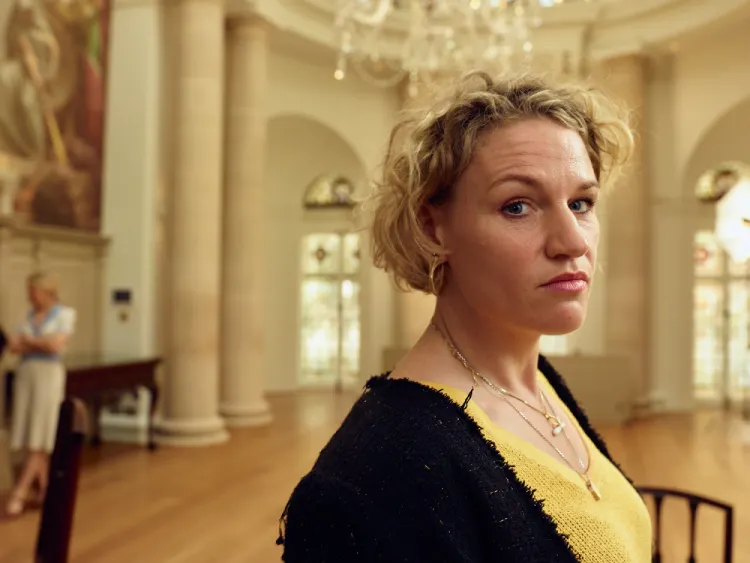
The client was completely unfazed and happy to work it out with me. On reflection it was mad – I remember sitting on the floor of the office at night trying to put witness bundles together with him. We relied heavily on counsel, who was fantastic (but rude! So rude!) and got a brilliant outcome.
A small group of powerful women have achieved – and held on to – a particular status over the past two decades or more. But might it soon be time to drop the ‘Queen Bee’ epithet?
Catherine Bedford: I think it is time, because the epithet brings with it the entirely wrong emphasis. Our cases – families going through breakdown – should never be about the lawyer and hopefully this is changing. Whatever area of law you’re in, of course there will always be stand-out leaders in the field, but are they called Queen Bees? No, they’re called leaders. Do I want to be a Queen Bee, and do I want to be like some of the others who are in that category? Absolutely not. It doesn’t help the client, whether the client realises it or not. But do I want to be doing really interesting work and have satisfied clients at the end of it who know you have done everything possible? Definitely. I want to work in a team of people who I enjoy being with and respect and who stimulate one another. That’s really what it’s all about.
Laura Naser: I think they are rightfully Queen Bees. I just think it’s phenomenal what that generation achieved, considering it wasn’t normal for a female to rise through the ranks and do what they did. And, you know, yes, we probably could be more diverse in family law, but I love that it’s female-led.
Georgina Hamblin: I feel like I’m up against them less and less, as I take on big cases myself and others are moving up the ranks as well. But I think we all have a lot of respect for them; Fiona Shackleton is absolutely amazing, and we work really well with Payne Hicks Beach. So, I think it’s great that there’s a new generation coming up, but it doesn’t diminish my respect for the Queens.
Lois Langton: It’s more important to sting like a bee than be a Queen Bee. And how will their retirement impact the industry?
Zoë Bloom: There are two ways it is going to go: either all the people who have been working under them have got such terrible Stockholm syndrome that they think that’s the only way of doing it and just continue in that, or there will be enough friction and disruption from those of us who are trying to do it differently that we will be successful.
But the danger is that the people who are trying to shout about it, the people who are most angry or kind of passionate about it, are kept down by the big firms, because it challenges the profit line. So you need the new firms, and you need them to be inserting themselves in the market where the current bigwigs are. That’s the problem.
‘It must be very difficult, if you’re at the absolute top of the game, to leave the profession. It must be, I don’t know, almost like losing your life.’
Ros Bever: They always seem so graceful to me. Maybe they’re swan-like on the top and paddling like mad underneath. It must be very difficult, if you’re at the absolute top of the game, to leave the profession. It must be, I don’t know, almost like losing your life.
Aside from the people practising it, how else is family law going to change?
Caroline Park (Hughes Fowler Carruthers): I think arbitration is the thing that’s going to really change the landscape. To begin with, people have been dipping their toes in the water and potentially arbitrating just an aspect of the case, but I think there is a groundswell. When you look at the number of cases that were arbitrated per year it’s gone up very substantially. I also think arbitration will lead to an explosion of private financial dispute resolution (FDRs).
Melissa Lesson: We do a lot more private FDRs. The courts were already over-burdened pre-pandemic, but now [we have] the possibility of being able to say ‘let’s fix a day and let’s do it at our offices’, because when you’re at court and you’re scrambling around trying to find a room, it isn’t conducive to having a decent conversation. There are also a lot of barristers now who are FDR judges as well. It’s a growing trend, but I think it’s a trend that’s here to stay.
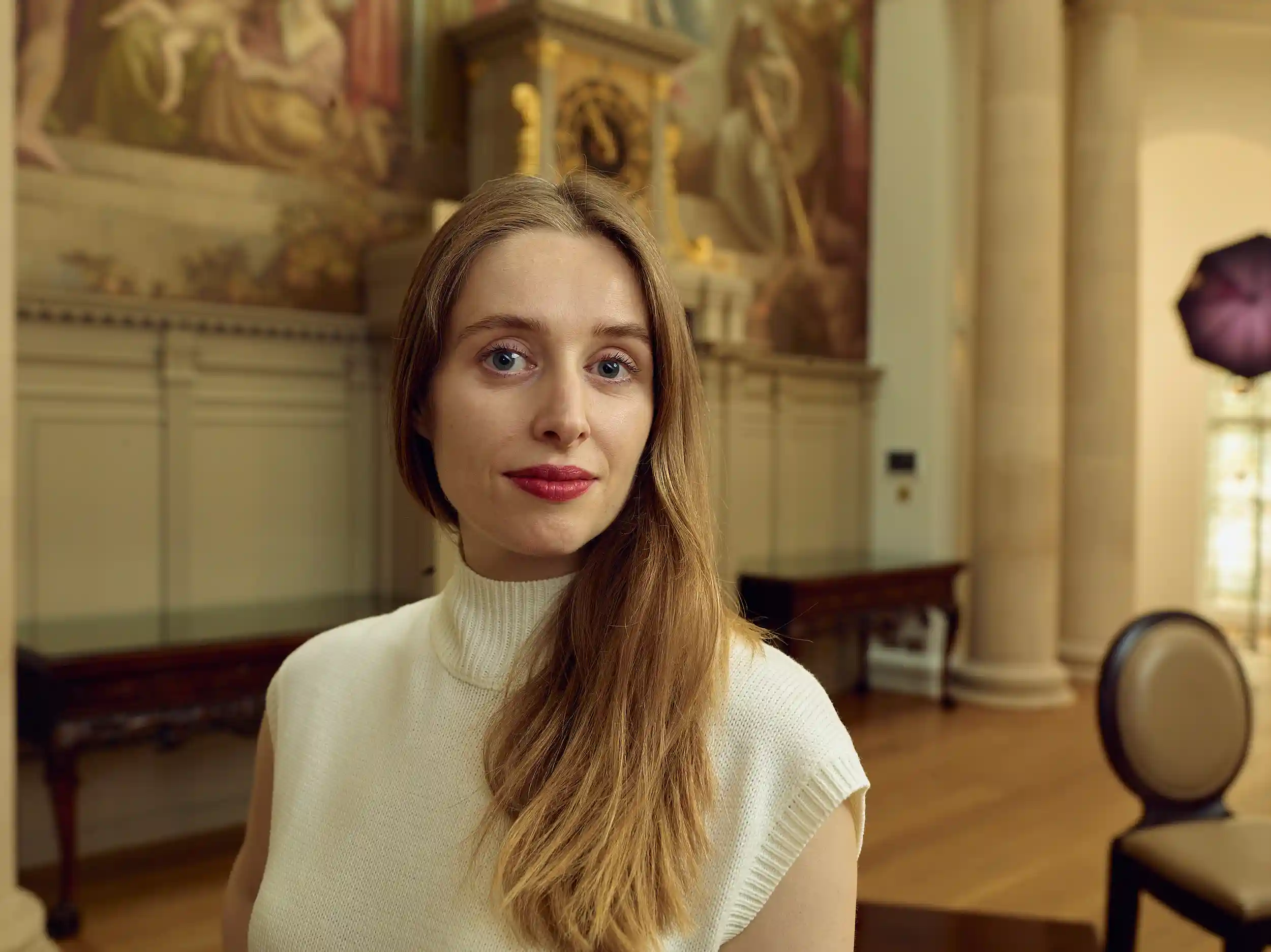
Joanne Edwards: There is also the increasing push for transparency in the family courts, and in the High Court in particular. A couple of the High Court judges are pressing for their cases to be heard in public. Frankly, what high-net-worth wants to air their dirty laundry for everybody to see?
You only need to see the other high-profile cases in the courts at the moment to see the sort of interest that they elicit. So I think that is also driving more people away from the court itself. Another thing which I think will become bigger is the prevalence of prenups, and the impact that that has at divorce. It’s 12 years this year since the groundbreaking case of Radmacher v Granatino, though the average length of marriage is 11 or 12 years. And so, because from 2010 more and more people started to have prenups, I’m now starting to see more of those divorces filter through.
Claire Blakemore: There are definitely areas where we still need litigation, because there’s still uncertainty. We’ve got legal principles and we’ve got case law, but families now are very different from how they were in the times in which some of that case law was made. I feel that some of it needs a little bit of a refresh; we need a shift in certain areas of law to reflect more modern families.
But, generally, people don’t want to go to court. There’s definitely far more awareness of the emotional burden now. I think we’re increasingly going to see a coming-together of a team of professionals – including psychotherapists, family consultants and so on, as well as lawyers.
There’s definitely much more focus now on a proper solution and the party is engaging with lawyers in order to get a solution that’s right for them, as opposed to having to be told what the answer is. I think that this will transform the way in which things happen for people. And it’s kind of for us to define that, isn’t it?
To lead the way. I’m excited about this transformation that’s happening because, for me, it slightly feels like [the profession is turning into] what I first imagined family law practice would be about. It is genuinely exciting, because it’s hard work trying to get two people who are divorcing to get to a resolution. But it’s so unbelievably satisfying when you get there.
Photography by Sebastian Nevols.
Interviews by Rasika Sittamparam and Rory Sachs. Editing by Chris Hawes.
The lawyers were photographed for Spear’s in May 2022 at One Moorgate Place. For further information, go to icaew.com
More from Spear’s
The 2022 Spear’s Family Law Survey reveals the trends shaping divorce
The spiralling cost of HNW divorce
The best family lawyers for high-net-worth clients
Spear’s Magazine presents Spear’s 500 Live on 7 September. Find more information on NSMG.live.







